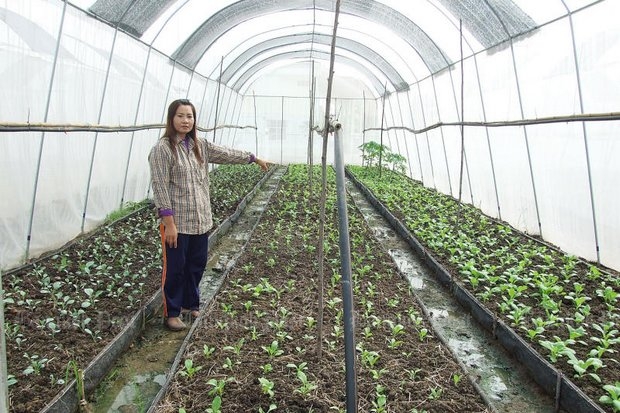
Even though the "going green" movement has gained traction in Thailand's business sector, more consumer demand for environmentally friendly products is still needed to power the country's green economy, experts say.
Speaking at a forum entitled, "Heading to a Green Economy with Sustainable Consumption" held by the Thailand Research Fund (TRF) and Policy Research Centre on the Green Economy (Pro-Green), Niramon Sutammakid, a reseacher at Pro-Green, said more Thai businesses in recent years are realising the importance of sustainable and eco-friendly business practices.
She said Thailand pledged to reduce greenhouse-gas emissions by 20-25% by 2030 at the United Nations Climate Change Conference in Paris in 2015.
According to the Thailand Greenhouse Gas Management Organisation, Thailand is the only Asean country that complies with the international greenhouse gas reduction certifying process.
A total of 648 products have joined the carbon emission reduction scheme which enabled the country to reduce the amount of greenhouse gases released into the air by 1.3 million tonnes last year.
Meanwhile, the number of green products in the Federation of Thai Industries' Eco-Product Directory has increased from 900 items to over 10,000 items over the past few years.
Another TRF researcher, Anin Aroonruengsawat, said purchasing behaviour and a lack information about the benefits of purchasing eco-friendly products might be the main causes for low demand on green goods.
"Although the number of individuals willing to purchase green products has increased in the past few years, there is little evidence to suggest the purchase of green products has increased," Mr Anin said.
Mr Anin said this means environmental considerations still play a minor role in Thai consumer purchasing decisions despite the efforts of advocacy groups.
The TRF researcher said people generally overlook the environmental impact of their purchases.
"The good news is that more companies now see sustainability as being vital to their future growth and core to their business, but the bad news is that consumers are not willing to pay a premium for green products," he said.
"They question why green products are more expensive than normal products," Mr Anin added.
To solve the problem, the director of TRF's Public Well-Being Division Chanathip Pharino suggested that both the government and private sector launch more campaigns to increase consumer awareness about the environmental impacts of their purchases because household products are responsible for 40% of environmental damages.